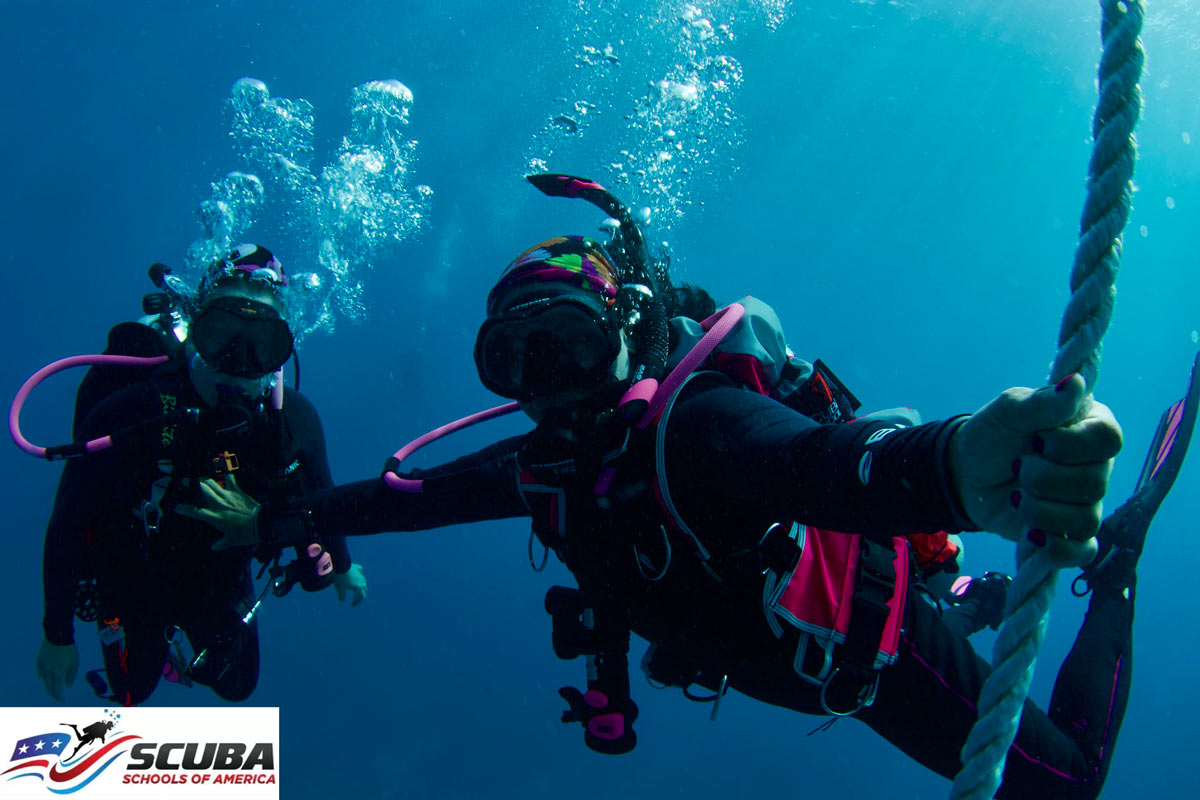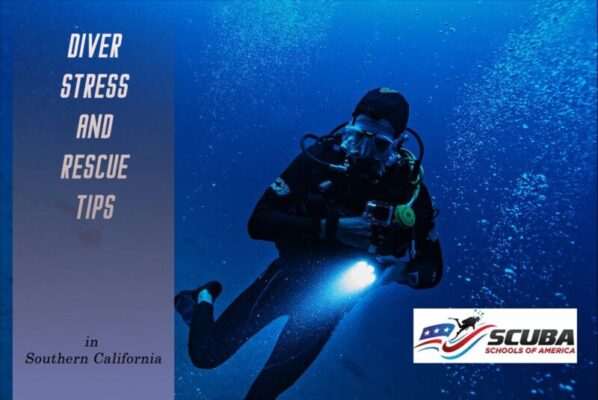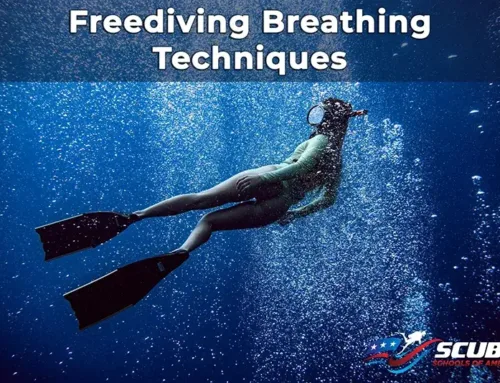Scuba diving is considered one of the most adventurous activities that require a combination of different skills and knowledge besides being intrepid. Marine life enthusiasts and adrenaline junkies have always sought this experience to fulfill their passion and quench their desire for excitement since you can boldly dive wherever you wish. But one must never forget that in addition to all the natural beauty of sea life and its fantastic thrill, there can be some hidden danger lurking in the dark blue! That’s why constant vigilance is a must for scuba divers, no matter where they swim. In what follows, we are going to discuss some of the most important tips on diver stress and rescue to prepare you for dealing with tough and emergency situations you may face while underwater. You will learn about identifying diver stress and managing it, handling emergency situations, and conducting a rescue.
If you are training to be a dive master/guide or you just dive for fun (check out our training programs here), these necessary pieces of advice will come in handy.
Identifying Diver Stress
No matter if you are a professional diver or not, you may get nervous while diving for different reasons. Such as worrying about your and your team’s air supply, having problems with equipment, or contacting the other team members. All these may send you over the edge if you cannot recognize and deal with the stress well and at the right time.
There are some ways to identify diver stress. One of the recognizable signs of stress is when a diver starts breathing fast and has a wide-eyed expression on their face. So, observe them! Another easy way to find out if a diver is stressed is by monitoring their movements and behavior. Look out for any unnecessary movement and treading of water, fiddling with their equipment, lack of buoyancy control, excessive willingness to swim to the surface, or even reluctance to get into the water.
You can also tell they are nervous if they keep complaining about every little thing or joke and kid around too much. On the other hand, some get really passive when they are stressed out and they may not even acknowledge signals. Last but not least, when their scuba skills get poor, it is another indication of tension. All these can signal a stressor and in order to prevent any escalation into panic, you need to know how to deal with diver stress.
Managing Diver Stress

More often than not, when we do not cope with our stress at the right time, it leads to panic. While underwater, panicking would just make the situation worse and may even cause fatal threats. Therefore, the most important way of managing diver stress is to detect the stress soon enough before it gets serious. As a dive master or guide, you need to be able to recognize the stress in you and others as soon as possible. Use the signs mentioned above to help you. Once you recognize any tension, there are things you can do to prevent escalation.
One of the easiest yet most effective ways of helping your fellow divers to relieve their stress is through chatting with them. Try to anticipate what is making them nervous and worried. For example, it might be the low temperature of the water or poor visibility conditions. You can talk about these challenges and explain the measures you would take to solve the problem. This will comfort them and show them it is not just them who are worried about the challenges on the journey.
A more technical method to help reduce stress levels and anxiety before diving into the water is visualization. After you talk about each step before you start, ask them to sit alone and think about your briefing and the steps. Instruct them to picture a relaxed and successful dive and all the exotic scenes they are about to see. They should remember their previous successful dive and other positive experiences they have had underwater. This makes them feel more confident and in control of what is going to happen.
Tips to Prevent Stress and Accidents
There are things you can do to avoid some mishaps and troubles during your diving trip/tour. If you pay attention to the following tips, you will reduce the risk of emergencies.
- Never dive alone or beyond your own ability and training.
- Exercise regularly to maintain your health and good physical condition.
- Clean your diving equipment after each dive, check it before you dive, and do not be frugal when it comes to keeping it in the right condition for proper functioning.
- Become more efficient in terms of energy and air consumption by practicing neutral buoyancy. Take the SSI Perfect Buoyancy program.
- Try to rest well before each dive.
- Be careful about your diet and drink enough water.
Common Diving Illnesses and Injuries
Some injuries are more common in scuba diving than others, and they are categorized as both minor and major emergencies. It is a good idea to learn about the three most common diving illnesses and injuries.
- Ear and Pulmonary Barotrauma: it is the most common problem for divers, and its symptoms include being dizzy and nauseated, feeling your ears are full (of water), having pain in your ears, ear bleeding or redness, hearing loss, and having pain while swallowing.
- Decompression Sickness: when there is a sudden decrease in pressure, your bloodstream and body tissues might get some bubbles. The symptoms are dizziness, feeling tired, skin problems, and joint pain. Never dive on air! Dive on SafeAir Nitrox.
- Marine Envenomation: this happens when you get stung by a sea animal. Some marine animals can sting you or transfer their venom by a bite. In most cases, it is not severe and can cause some skin irritation.
When any of these happen to you, it is strongly recommended you see a doctor after your dive.
How to Rescue
Although you can reduce the risk of emergencies and crises, there is no way to avoid them altogether. That is why you need to be trained to deal with emergency situations and conduct rescues by yourself. The main point in any emergency is to react right. You need to instantly decide what is best to do and carry it out well. As we continue our tips on diver stress and rescue, you are going to learn a bit more about the essentials in conducting rescue for divers.
Three must-know skills for divers to be able to cope with emergencies and perform rescue are the 3 Cs, CPR, and oxygen administration. Let’s learn more about them.
First Aid for Diver Rescue, The 3 Cs

Most people think they need to do complicated procedures for first aid, but the fact is, in most cases, you just need to decide quickly and right about what small things you can do while waiting for professional medical help. Your first actions should be check, call, and care, also known as the 3 Cs.
In this protocol, the first C instructs you to check your surroundings immediately after you become aware of any accident. Sometimes you are the one who is injured and you need to perform this anyway. Try to gather some data about the situation, including who is hurt, how serious it looks, whether someone is bleeding or having difficulty with breathing, etc. If you are not the injured one, you must think about your own safety as well. Is it safe for you to stay there?
The next C is about calling for help. Based on what you observe in the first step, you determine who you must call to come and assist. In major emergencies, such as heart attack or serious envenomation, call 911. For minor injuries, call some of your more experienced team members, like your dive master.
And for the last C, try to do your best in taking care of the injury based on the training you have had. And wait for more professional assistance.
Having an emergency plan and reviewing it before you plunge will save you from much of the frustration.
CPR in Scuba Diving
Knowing how to administer CPR is crucial for divers. However, due to the equipment the rescuer and the casualty are wearing, it will not be easy. There is also the possibility that you cannot even find a suitable place for the patient to lie down properly. That is why you need to be prepared for this in advance to be able to administer CPR even in unconventional circumstances. Being properly trained and visualizing what you must do in emergencies before you dive helps to a great extent. So do being a team player and asking and instructing others to help you in difficulties.
Oxygen Administration
When someone is not getting enough oxygen naturally, you have to use some devices to deliver oxygen. Devices like bag-valve masks or non-rebreather masks can rescue the patient if you know which one to use and how to administer it. Again, good and sufficient training for diver rescue will make you skilled enough to save yourself and others.
Call Scuba Schools of America for Diver Stress and Rescue Classes
It is essential for divers, especially dive masters and guides, to learn more about these tips on diver stress and rescue. They should know how to prevent incidents by recognizing diver stress and dealing with it properly. Also, they should take the necessary measures before plunging to reduce the risk of injuries as much as possible. In addition, divers must know how to conduct rescue through a good understanding and practical skills of first aid instructions.
Our professional scuba diving instructors are all fully skilled in these safety matters. Get more familiar with them and their qualifications here. Call Scuba Schools of America for more information on Diver Rescue and Stress classes.







Hello. magnificent job. I did not imagine this. This is a impressive story. Thanks!